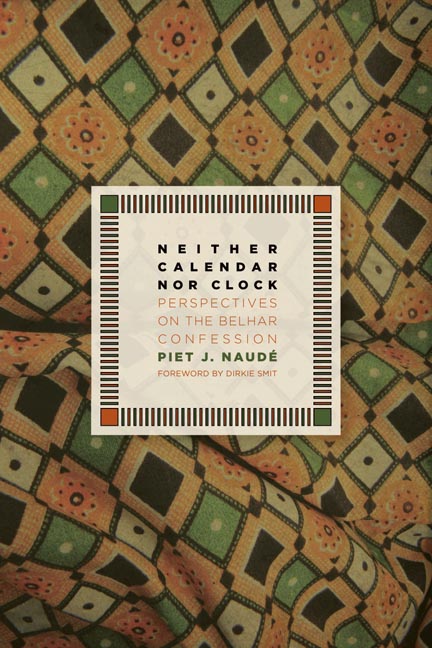Adoption of a new confession is a rare event in the history of the church. Neither Calendar nor Clock tells the story of the Belhar Confession, adopted in draft form in 1982 by the ?colored? Dutch Ref
Adoption of a new confession is a rare event in the history of the church. Neither Calendar nor Clock tells the story of the Belhar Confession, adopted in draft form in 1982 by the ?colored? Dutch Reformed Mission Church in South Africa.
Piet J. Naudé here examines how churches both inside and outside South Africa reacted to this new confession. He further considers the question of how an African confession speaks in the twenty-first century by reinterpreting Belhar through its three middle articles ? unity, reconciliation, and justice ? and relates it to contemporary issues like gender rights, HIV/AIDS, and economic justice.
To understand the ?no? of the confession, Naudé analyzes the theological ideology against which Belhar witnessed. To give insight into the ?yes? of the confession, he draws out the link between Belhar and the apostolic faith of the ancient Nicene creed. In so doing, he reveals how this African confession is important for the universal church today.
?The Belhar Confession played a crucial role in overcoming apartheid in South Africa. Piet Naudé is one of the leading authorities able to reconstruct the complex genesis of this confession and its strong repercussions in South African society and across the political and ecclesial spectrum. This book is a powerful testimony to a ?humanizing Christian theology? ? a witness to God and an ethical challenge to us all.?
? Michael Welker
University of Heidelberg
?Naudé writes about the ongoing task of interpreting Belhar, but in fact he helps us to see and think about much more: the nature of our tradition, the roots of our faith, the way we belong to one another, and the challenges of our time. This is truly a timely book!?
? Dirkie Smit (from the foreword)
View Review quote
